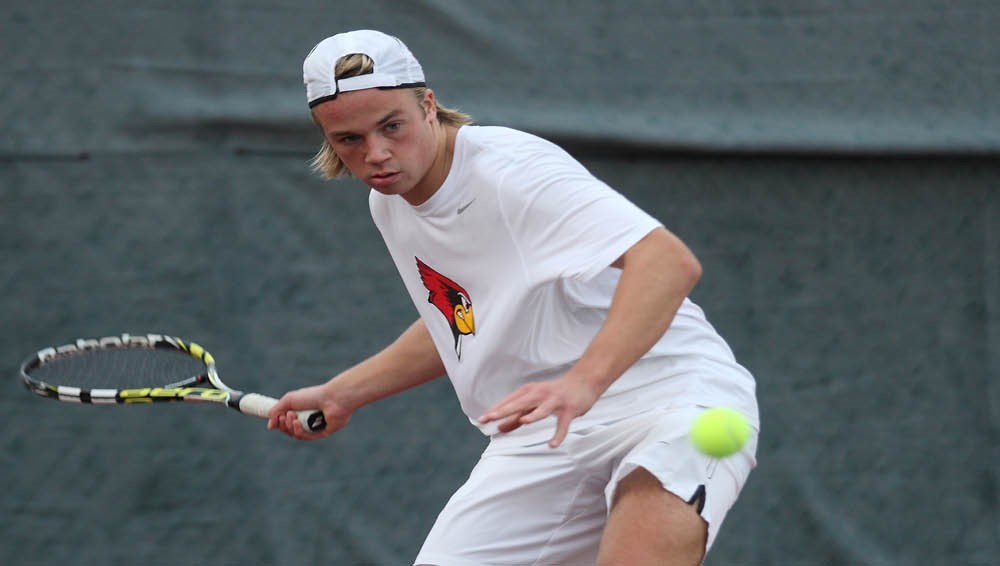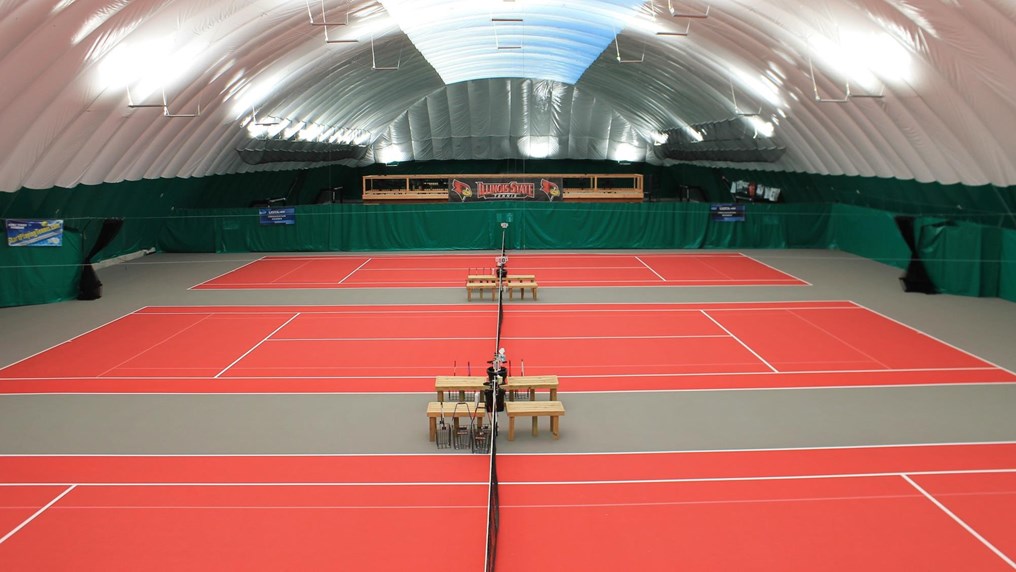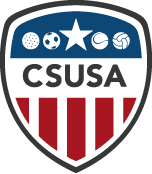Life as a Tennis Student Athlete in the USA with Christoffer Greve

Welcome, Christoffer, we are excited to hear about your experience of being a student-athlete in the US!
Thank you for having me!
You started playing Tennis in your home country, Norway, what was it like growing up and playing tennis here?
Historically, we have been a small tennis nation. There are far more players and competitions in other countries. There weren’t many professionals when I was growing up. But the sport is starting to grow here, especially with the emergence of players like Casper Ruud.
Do you think that is why many tennis players head to the US, possibly as a steppingstone to turn professional?
Yes. Only the top 150 players can make a living from playing tennis. So when a lot of players get to 16, 17, 18, they realize how tough it’s going to be. If they don’t have the financial support to try and go pro, college sport in the US is a great plan B.
Despite tennis often being an individual sport, how did you find playing as part of a team in the US?
Tennis takes up a lot of time. You’re usually traveling all over the world and spending much of your time alone. With college tennis, you get to be part of a team.
Were you the only international on the tennis team or did you have teammates from all over?
We had guys from everywhere. There were two guys from South America, one from India, South Africans, Americans, and Europeans. We all had our own routines and cultures, but my coach did an excellent job. He was good at understanding the different players, how we interacted, and what we all needed. He turned a group of individuals into a unified team. I enjoyed that a lot.
In the lead-up to going to the US, how did you find the recruitment process?
The first thing that stuck out was the amount of paperwork! I appreciated all the help College Scholarships USA gave me with it. I was pleasantly surprised by how professional the process was and how many people from the actual school were involved. I got to talk to the coach, who explained the set-up. That’s when I realized that playing at Illinois would be a pretty big deal.
During your process, you had some big schools like Washington and Penn State who were interested in recruiting you. Why did you decide to attend Illinois State University?
It’s flattering when big schools are looking at you. But I wanted to play matches. Schools like Penn State can have ten top former international juniors, but only six are playing in competitive games. It would have been nice to play for a big-name school. But at Illinois, I could get into the starting line-up and become a better player.
Illinois is not usually the first-choice state when deciding on location and when thinking of college sports. Were you worried about this at all?
You’re right. Most people want to go to the East or West Coast. But I was pretty open-minded, and Illinois was awesome. It gave me an authentic college experience. There was a genuine college town feel and sense of community. I don’t think you get that in the major cities.
What was it like when you first arrived on campus?
I remember feeling excited. The first place I saw was my dorm, where I’d be living for the following year. Everybody was an athlete in my dorm, so the atmosphere was welcoming. I was surrounded by like-minded people who liked to work out and do well in school. I felt included from day one.
How did you find the balance between all the training you do as a tennis player with your academic commitments?
It was fast-paced. We had morning workouts followed by classes. Then we’d be playing tennis from 2.00 pm to 5.00 pm pretty much every day. Thankfully, we received plenty of support academically. As student-athletes, we had our own academic center with advisers and tutors. I wouldn’t have gotten that support anywhere else. They make a schedule that suits you. So even when it’s super busy, it still feels manageable and fun.
How would you describe what the tennis season is like in the US?
This is where tennis at college is so cool. Many college sports are only one semester; you’re either playing in Spring or Fall. But we played between 6-8 tournaments in the Fall. Then in the Spring, we played as a team in conference competitions. That’s when things start getting serious. You play almost every week from January to May.

During your time as a student-athlete, what were some of your favorite sporting memories?
I liked going to the big schools, like Oklahoma State. They were in the top 25 in the country. And going to away games to play your rivals is always fun. There are always good battles. I loved playing the top guys from the best tennis schools. It’s a chance to see where you are as a player. And if you do well enough, these big schools will start looking at you. I saw guys make it to the pros in this way.
Did you find that playing college tennis improved you as a player?
Playing in competitive matches every weekend toughens you up. It got me match-fit and comfortable performing under pressure. I also developed a lot more mental strength. We were always encouraged to play aggressively, not be passive, and win and lose on our own terms. That made me become a much better player.
How did you make sure you were successful in the classroom as well as the court?
I had to remain focused and adapt to a busy schedule. Finding a major I enjoyed was a big help. I knew pretty quickly that I wanted to major in finance. That made it easier to stay motivated. I also scheduled my week every Sunday, so I knew what I had to do every day. Then I followed that plan.
How much time did you spend studying?
It’s hard to say the exact hours. But it felt like I was using almost every second in between and after practices for studying. Some of my classes were very tough, and I was busy traveling and playing on weekends.
With a busy schedule, did you find time to have fun and interact socially?
For sure! That was a very important part of it, and it’s why I enjoyed my college time so much. We had a great group of guys on the tennis team. We hung out a lot off the court. If we’d been training extra hard, the coach would give us Friday afternoon off and say, “go have a good time!”
After graduating from Illinois, you went back home to Norway to study for a post-graduate degree. Do you think that an undergraduate degree in the US helped prepare you for a post-graduate degree?
They’re very different systems. There are more exams here and more independent study. But everything I learned about finance at Illinois put me in a strong position. So I adapted pretty quickly.
After finishing business school, you landed your first professional job which is exciting. How are you finding it?
After 13 years of continuous education, it’s great. I’ve been in my current role for over a year now. I feel like my time in the US gave me a solid foundation to transition into the real world.#
And are you still playing tennis?
I still enjoy playing a little bit every week, and I play in tournaments when possible. It’s been tough during the last year because of COVID, but hopefully, I can get going again soon.
Your journey is inspiring that is for sure. If you could provide advice to anyone who is thinking about following the pathway to the US as you did, what would it be?
Do the research before you go, and figure out your level. Then just go for it. College sport is a great experience and such a cool thing to be part of. Plus, it sets you up for life.
It’s been a pleasure talking to you, Christoffer. Your story will certainly inspire many tennis players to follow in your footsteps.
Thank you for having me on, and thank you for getting me over there. It’s been a real privilege.





